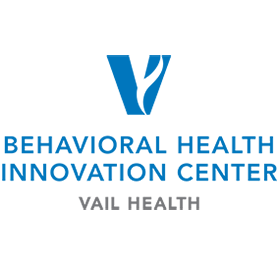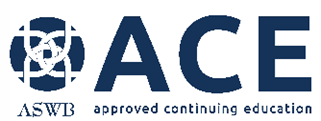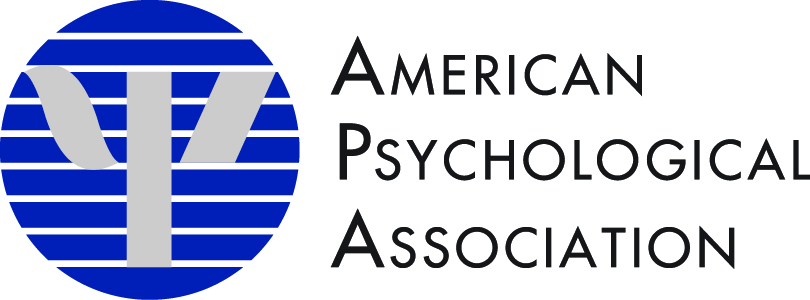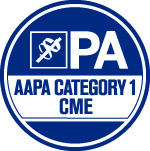
Novel Approaches to Behavioral Health Innovation: Leveraging Polyvagal Theory to Enhance the Treatment of Traumatized Patients: a Conversation with Dr. Stephen Porges

As humans we take for granted that—for better or worse—our lives are intimately entwined with those of others. Remember how off-putting the empty public spaces of Covid were, how unnatural, and how quickly we’ve rushed back to being packed together in so many of our activities? We should marvel at this ability, because it came along late in the evolution of life in a world where most interactions involved eating, being eaten or fighting to reproduce. How did we manage these mandates while also becoming so collaborative, so dependent upon each other from the moment of our birth to the moment of our death?
Of all the theories that have addressed this question, none has been more impactful than Polyvagal Theory which explains how we as mammals evolved unique autonomic nervous system pathways between the brain and body that allow us to respond to threat while also being able to engage closely with others when we receive signals of safety. The theory also provides elegant explanations for why, and how, trauma—especially early in life—so often promotes depression, anxiety, and poor physical health. More than this, polyvagal theory provides guidance on how to help patients calm their autonomic nervous systems to activate the social engagement system in ways that make them more amenable to treatment, which helps explain the theory’s far reaching impact within the mental health clinical community.
We are honored to welcome Dr. Stephen Porges, the creator of Polyvagal Theory, to this month’s “Novel Strategies for Behavioral Health Innovation” lecture. Rather than giving a formal lecture, Dr. Porges has asked that the talk be structured as a conversation with Dr. Charles Raison, Director of the Vail Health Behavioral Innovation Center. After providing a basic introduction to Polyvagal Theory, our conversation will focus on ways to leverage the insights of the theory to enhance the treatment of patients struggling with the sequelae of unhealed trauma. To quote Dr. Porges, “We will focus on the role of the client’s physiological state in mediating the effectiveness of any form of intervention, asking if the client’s nervous system is accessible and welcoming to treatment, and if not, how to optimize accessibility and reduce adverse reactions.”
This educational activity is designed to change learner competence and focuses on the following competency areas:
- The American Board of Medical Specialties: Patient care and procedural skills, Medical knowledge
- Nursing: Employ evidence-based practice
- Center for the Advancement or Pharmacy Education: Health and wellness, Interprofessional collaboration, Learner, Patient-centered care
- Pharmacy Technician Certification Board: Pharmacology
- Interprofessional Education Collaborative: Interprofessional Communication
- Diversity, Equity, and Inclusion: Engage in self-reflection, Value diversity in the clinical encounter
Intended Audience
This activity is designed for Psychologists, Pharmacists and Pharmacy Technicians, Physicians, Nurses, Physician Assistants, Social Workers, and other behavioral health clinicians.
Learning Objectives
As a result of participation in this educational series, members of the healthcare team will be able to:
- Explain key aspects of evolutionary processes that produced changes in the autonomic nervous system that allow humans to engage in close social relationships that support wellbeing and physical health.
- Explain core features of Polyvagal Theory including the vagal paradox, neuroception and the social engagement system.
- Describe strategies for using the clinical implications of Polyvagal Theory to enhance care of patients with trauma histories.
This is a virtual event. The webinar link is available in the course, and will also be emailed to you prior to the event.
Stephen W. Porges, Ph.D. is a Distinguished University Scientist at Indiana University where he is the founding director of the Traumatic Stress Research Consortium in the Kinsey Institute. He is Professor of Psychiatry at the University of North Carolina, and Professor Emeritus at both the University of Illinois at Chicago and the University of Maryland. He served as president of the Society for Psychophysiological Research and the Federation of Associations in Behavioral & Brain Sciences and is a former recipient of a National Institute of Mental Health Research Scientist Development Award. He is the originator of the Polyvagal Theory, a theory that emphasizes the importance of physiological state in the expression of behavioral, mental, and health problems related to traumatic experiences. He is the creator of a music-based intervention, the Safe and Sound Protocol ™ , which currently is used by approximately 3,000 therapists to improve spontaneous social engagement, to reduce hearing sensitivities, and to improve language processing, state regulation, and spontaneous social engagement. Dr. Porges is a founder of the Polyvagal Institute.
Policy on Faculty and Sponsor Disclosure
It is the policy of the University of Wisconsin–Madison Interprofessional Continuing Education Partnership (ICEP) to identify, mitigate and disclose all relevant financial relationships with ineligible companies* held by the speakers/presenters, authors, committee members, planners, and other persons who may influence content of this accredited continuing education (CE). In addition, speakers/presenters and authors must disclose any planned discussion of unlabeled/unapproved uses of drugs or devices during their presentation(s). For this accredited continuing education activity all relevant financial relationships have been mitigated and detailed disclosures are listed below.
*Ineligible companies are those whose primary business is producing, marketing, selling, re-selling, or distributing healthcare products used by, or on, patients. The ACCME does not consider providers of clinical services directly to patients to be ineligible companies.
Name | Role | Financial Relationship Disclosures | Discussion of Unlabeled/Unapproved uses of drugs/devices in presentation? |
Stephen W. Porges, PhD | Speaker | No relevant relationships with ineligible companies to disclose | Yes |
| Casey Wolfington, PhD | Clinical Director/ Planning Committee Chair | No relevant relationships with ineligible companies to disclose | No |
Marshall Thomas, MD | Planner | No relevant relationships with ineligible companies to disclose | No |
Angelia Dreher, PharmD | Planner | No relevant relationships with ineligible companies to disclose | No |
Whitney Georges, RN | Planner | No relevant relationships with ineligible companies to disclose | No |
Tracey Branch, MSW | Planner | No relevant relationships with ineligible companies to disclose | No |
Robert Brown, CPhT | Planner | No relevant relationships with ineligible companies to disclose | No |
Charles Raison, MD | Planner, Presenter | Otsuka America Pharmaceutical (Independent Contractor - Consultant), | No |
Tania Engle, PA | Planner | No relevant relationships with ineligible companies to disclose | No |
| Eric Buxton, PhD | Peer Reviewer | Johnson and Johnson International (Stock), Lexicon Pharmaceuticals, Inc. (Stock), Organon & Co. (Stock), Merck KGaA (Stock) | No |
 | In support of improving patient care, this activity has been planned and implemented by the University of Wisconsin–Madison ICEP and Vail Health. The University of Wisconsin–Madison ICEP is jointly accredited by the Accreditation Council for Continuing Medical Education (ACCME), the Accreditation Council for Pharmacy Education (ACPE), and the American Nurses Credentialing Center (ANCC), to provide continuing education for the healthcare team. |
Credit Designation Statements
American Medical Association (AMA)
The University of Wisconsin–Madison ICEP designates this live activity for a maximum of 1 AMA PRA Category 1 Credits™. Physicians should claim only the credit commensurate with the extent of their participation in the activity.
American Nurses Credentialing Center (ANCC)
The University of Wisconsin–Madison ICEP designates this live activity for a maximum of 1 ANCC hours.
Accreditation Council for Pharmacy Education (ACPE)
The University of Wisconsin–Madison ICEP designates this knowledge-based activity for 1 hour or 0.1 CEUs. Credit can be earned by successfully completing the activity and the evaluation. Credit will be provided to NABP CPE Monitor within 60 days after the activity completion.
UAN:
Pharmacist: JA0000358-9999-24-038-L99-P
Pharmacy Technician: JA0000358-9999-24-038-L99-T
Association of Social Work Boards (ASWB)
 | As a Jointly Accredited Organization, the University of Wisconsin–Madison Interprofessional Continuing Education Partnership (ICEP) is approved to offer social work continuing education by the Association of Social Work Boards (ASWB) Approved Continuing Education (ACE) program. Organizations, not individual courses, are approved under this program. Regulatory boards are the final authority on courses accepted for continuing education credit. Social workers completing this course receive 1.0 general, live continuing education credits. |
American Psychological Association (APA)
 | Continuing Education (CE) credits for psychologists are provided through the co-sponsorship of the American Psychological Association (APA) Office of Continuing Education in Psychology (CEP). The APA CEP Office maintains responsibly for the content of the programs. |
American Association of Physician Assistants (AAPA)
 | The University of Wisconsin–Madison ICEP has been authorized by the American Academy of PAs (AAPA) to award AAPA Category 1 CME credit for activities planned in accordance with AAPA CME Criteria. This activity is designated for 1 AAPA Category 1 CME credits. PAs should only claim credit commensurate with the extent of their participation. |
Continuing Education Units
The University of Wisconsin–Madison ICEP, as a member of the University Professional & Continuing Education Association (UPCEA), authorizes this program for 0.1 continuing education units (CEUs) or 1 hours.
Available Credit
- 1.00 AAPA Category 1 CME
- 1.00 ACPE Contact Hours - Pharmacist
- 1.00 ACPE Contact Hours - Pharmacist Technician
- 1.00 AMA PRA Category 1 Credit™
- 1.00 ANCC Contact Hours
- 1.00 APA CE Credits
- 1.00 University of Wisconsin–Madison Continuing Education Hours
- 1.00 Approved for AMA PRA Category 1 Credit™
Click BEGIN to register
Registration for this activity can only be completed through the ICEP Learning Portal. Attendee registrations made through any other sites cannot be honored. UW-Madison ICEP is not able to refund fees paid through unaffiliated registration sites, such as eMedEvents.com, MedConfWorld.com, EventEgg.com, and 10times.com. Please report any unauthorized websites or solicitations for registrations to [email protected].
Accessibility
The University of Wisconsin provides equal opportunities in employment and programming, including Title IX requirements. The University of Wisconsin fully complies with the legal requirements of the ADA and the rules and regulations thereof. If any participant in this educational activity is in need of accommodations, please notify us at [email protected]
Questions
For questions about registration, please email [email protected]. For general questions about this series, please contact Pam French at [email protected]

 Facebook
Facebook X
X LinkedIn
LinkedIn Forward
Forward